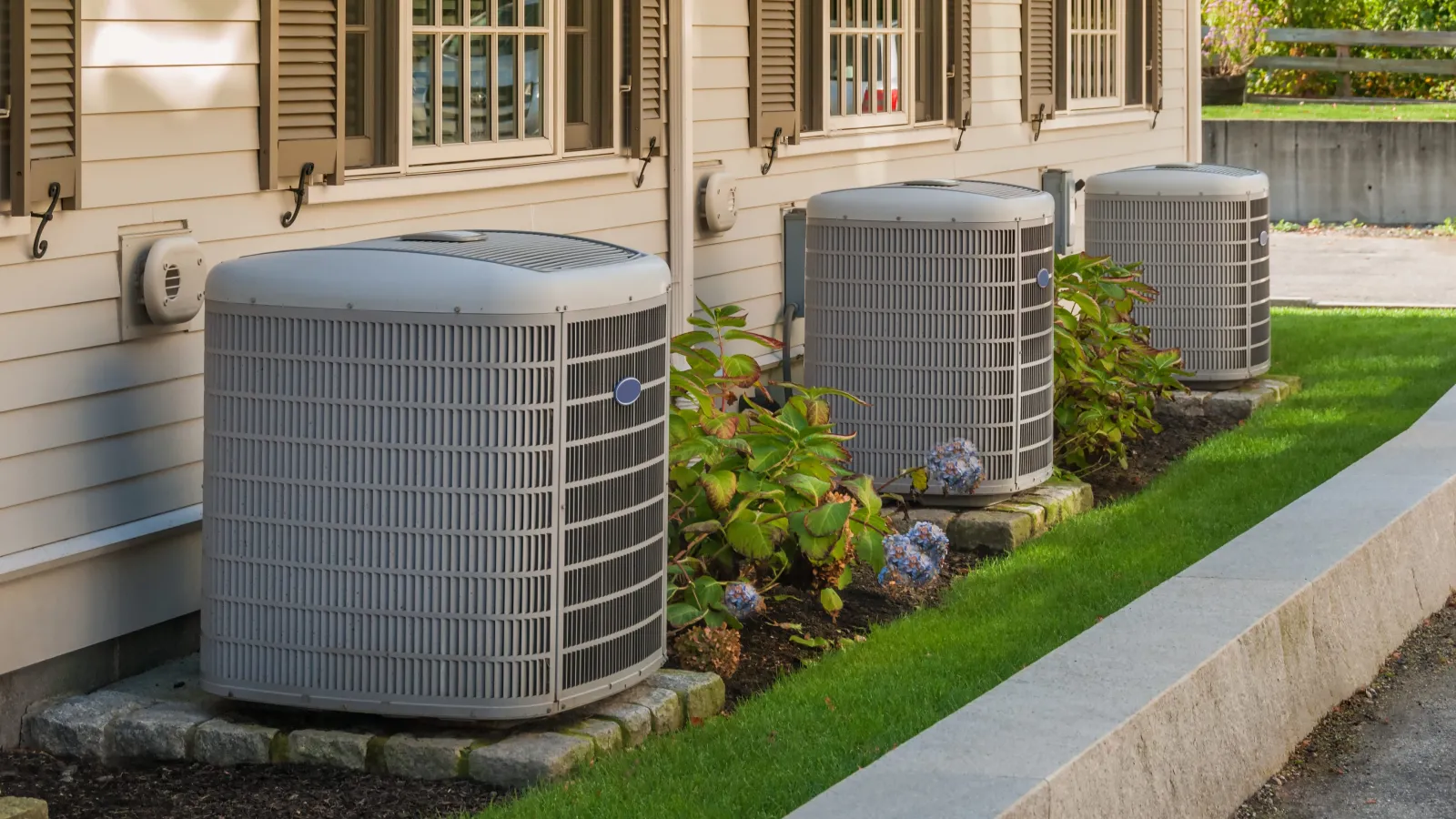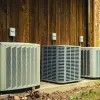Let's say you're hanging out on your back deck. You've got a cool drink in hand, and you're soaking up the sun. You hear your air conditioner kick on, and you turn your head to look at it.
It's looking like it's seen better days. It might even be kind of old.
Suddenly, you're wondering: How long do air conditioners last?
Is yours on the outs? When will you have to invest in a new one?
These are good questions. And while we'll do our best to answer them in this article, the truth is there are lots of things that affect the lifespan of an air conditioner.
Heck, let's cut to the chase. In our climate zone…
…air conditioners typically last 10 to 15 years.
We live in Atlanta, where it's common to run your air conditioner from April through October. Assuming your AC receives regular TLC, 10 to 15 years is a pretty safe bet.
But why such a big range?
For starters, many air conditioner manufacturers offer 10-year warranties for parts. That doesn't mean your current system definitely has a 10-year parts warranty because not all installers register their customers for that warranty. Your system might have a 5-year warranty, especially if it's entry-level equipment.
However, many air conditioning systems do have 10-year warranties, and the cost of most replacement parts will be covered during the warranty period. Note that you will still have to pay labor costs on the replacement of any parts, even if it's during the equipment warranty period.
That's why you're usually good to go for the first ten years. After that, it gets… trickier.
After 10 years, you usually can't replace AC parts under warranty.
This is where you'll have to weigh the pros and cons of keeping a broken air conditioner going.
If your compressor fails or an evaporator coil develops a leak during the first decade of ownership, just replace the part for free (aside from labor costs) and keep on chugging. No worries.
But if, say, the compressor dies and the system isn't under warranty anymore, you're looking at a $3,000 to $6,000 repair bill. Is it worth it?
If the system is out of warranty and needs significant repairs, it's important to consider all of the factors involved in maintaining an old air conditioning system.
Things to consider when repairing an out-of-warranty air conditioner
If you're looking at a big repair bill for an air conditioner more than 10 years old, be sure to factor in the following:
- Cost of today's repairs vs. future repairs: If the AC is broken now, how much longer until something else goes wrong? How much will that repair cost?
- Potential energy savings: Newer air conditioning systems are significantly more efficient than whatever you've got today. How much additional money are you spending to run an old AC when a new one would lower your energy bills?
- Inflation: In recent years, inflation has been quite high. If you wait to replace your air conditioner, how much more expensive will it be to buy another one when you basically have no other option?
For anybody facing a major AC repair for a system that's between 10 and 15 years old, we recommend considering the factors listed above. All of them can have a major impact on the total cost of ownership for your current air conditioning system compared to whatever you might (or might not) replace it with.
In most cases, homeowners find that it's not worth fixing an out-of-warranty air conditioning system that needs significant repairs.
Needless to say, the same considerations apply to air conditioners that are over 15 years old. If yours has made it that long and is still keeping you cool, congratulations!
How to maximize the longevity of your air conditioning system
The best way to ensure your AC lasts as long as possible is to start off on the right foot. A quality initial installation helps ensure maximum performance and longevity of the system.
What's involved in a quality installation? Here are some essential characteristics:
- Manual J load calculation: This exercise ensures you get an air conditioner that's the right size for your home. Oversized AC's don't last as long. Full stop. They also don't cool as well and consume more energy. If your HVAC contractor isn't doing a load calculation, they're doing it wrong.
- Proper sizing and installation of all ductwork: There's no such thing as a good AC installation that relies on bad ductwork. All ducts should be properly sized and installed to ensure optimal airflow throughout the home. Otherwise, you can overwork the system and experience parts failure.
- Post-installation audit: Did your contractor check their work? They need to! No AC installation is complete without a post-installation audit that ensures everything was done right-and that you're comfortable!
Aside from the installation itself, it's important to have your air conditioning system serviced regularly. PV Priority Plan members get two maintenance visits per year: once before the cooling season and once before the heating season.
This way, we can ensure your AC is ready for anything the hot summer will throw at it.
And since we live in Atlanta, our summers can really put your AC to the test!
Conclusion: ACs typically last 10 to 15 years and last longest with regular maintenance.
In our climate zone, 10 to 15 years is a good benchmark for AC longevity. A system might last longer in a cooler climate where it doesn't get as much use.
If you're concerned about an aging air conditioning system or think you might have a problem with your AC, PV can help! We provide comprehensive AC repair and replacement services all across Metro Atlanta!
Give us a call today at (404) 798-9672 or schedule an appointment online!




